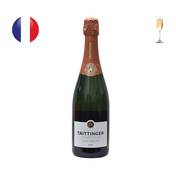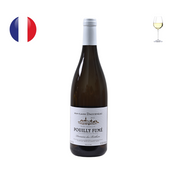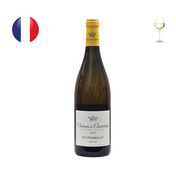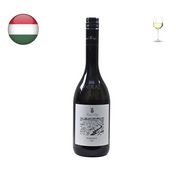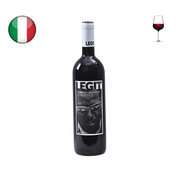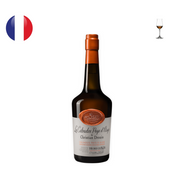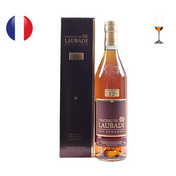Cakebread Cellars, founded in 1973 by Jack and Dolores Cakebread, has established itself as a hallmark of quality, sustainability, and hospitality in Napa Valley. Beginning with a modest tractor shed as its first winery, Cakebread has evolved into a state-of-the-art facility equipped with diverse fermentation vessels, extensive barrel storage, and a visitor’s center that welcomes wine enthusiasts from around the world.
Founding and Growth
The Cakebread journey started when Jack Cakebread, originally on assignment to photograph Napa Valley winemakers, made an unexpected offer to purchase a family friend's farm in Rutherford. The family planted vines on their 9-hectare property, and by the following year, they had produced their first wine: a 1973 Chardonnay. Today, the winery is overseen by Jack and Dolores' sons, Bruce and Dennis Cakebread, who serve as co-owners and board members.
Cakebread Cellars now manages 18 vineyards spread over 728 hectares, with 324 hectares under vine. Their vineyards cover prime Napa Valley terroirs, including the Rutherford Bench and Howell Mountain, and they recently expanded further with an 85-hectare vineyard in Carneros. The estate vineyards allow Cakebread to maintain rigorous standards in cultivating and harvesting grapes, producing a diverse portfolio of wines, including Chardonnay, Sauvignon Blanc, Cabernet Sauvignon, and Merlot. Their single-vineyard bottlings showcase the unique characteristics of specific sites.
Winemaking Approach
Under the direction of Niki Williams, the winemaking team combines traditional techniques with modern technology. Grapes are harvested at night to preserve quality, and an optical sorter ensures that only the best berries are used. The team employs a mix of fermentation and aging vessels, including oak barrels, stainless steel tanks, and concrete eggs, carefully matching each lot of grapes to the most suitable vessel to achieve the desired balance of fruit and oak.
Commitment to Sustainability
Sustainability is at the core of Cakebread Cellars' philosophy. The winery uses organic farming practices across all estate vineyards, aiming to minimize environmental impact through methods such as eliminating herbicides, managing soil moisture, and using precise irrigation techniques. Native grasses are planted, and wildlife populations are monitored to maintain a healthy ecosystem. Cakebread Cellars was one of the first wineries to achieve Napa Green certification and has received numerous accolades for its sustainability efforts, including the California Green Medal Award and recognition from International Wineries for Climate Action. The winery aims to be carbon-neutral by 2030.
Expanding Beyond Napa Valley
In addition to its Napa Valley operations, Cakebread has expanded its reach with Mullan Road Cellars in Washington State and the recently launched Bezel wines, featuring Chardonnay and Pinot Noir from California's Central Coast. This expansion reflects Cakebread’s commitment to exploring new opportunities while staying true to the founding values of quality, sustainability, and hospitality.
Vineyards and Winemaking
Cakebread Cellars’ vineyards span diverse Napa Valley regions, enhancing the variety and character of their wines:
Dancing Bear Ranch: Located on Howell Mountain, this high-elevation vineyard features rocky soils and a cool climate, ideal for growing Cabernet Sauvignon, Merlot, and Cabernet Franc.
Carneros Vineyards: This region, known for its cool climate due to proximity to San Pablo Bay, is ideal for Chardonnay. Key vineyards include Cuttings Wharf Road, Tinsley Ranch, Milton Road, Foster Road, and Cassidy Road. The newly acquired Ahmann property will be planted with Chardonnay and Sauvignon Blanc.
Suscol Ranches: Located southeast of Napa, these vineyards benefit from cooler temperatures and rocky soils. Suscol Springs is known for its balanced acidity and complexity, while Suscol Mountain, a newer site, produces concentrated flavors due to its high elevation and rocky soils.
Anderson Valley Vineyards: Annahala Ranch and Apple Barn, both former apple orchards, provide diverse Pinot Noir expressions due to their varied climates and soil types.
Winery Ranches: Rutherford, Oakville, and River Ranches, close to the winery, are known for producing world-class Cabernet Sauvignon, Merlot, and Sauvignon Blanc.
Doggwood Vineyard: Situated in the eastern hills of Napa Valley, this vineyard is noted for its concentrated Cabernet Sauvignon grapes.
Hill Ranch: Located in Rutherford, this small vineyard is the primary source for the Benchland Select Cabernet Sauvignon. The cool, foggy mornings and warm, dry afternoons, along with deep loamy soils and mountain shade, create ideal conditions for mature vines, resulting in powerful, intense wines with balanced acidity and tannins.
Maple Lane Vineyard: Nestled near Calistoga, this vineyard produces a variety of wines, including Cabernet Sauvignon and Sauvignon Blanc.
Sustainability
In the vineyards, Cakebread employs sustainable practices such as precise irrigation, composting, and integrated pest management. The winery uses microturbines for energy efficiency, permeable pavers for water management, and continually seeks ways to reduce water use and improve environmental responsibility.
Looking Ahead
As Cakebread Cellars celebrates its 50th anniversary, the focus remains on upholding the vision of its founders: producing wines of the highest quality with a commitment to environmental responsibility. The family-owned winery continues to pave the way for future generations, grounded in the values that have defined Cakebread for half a century.


